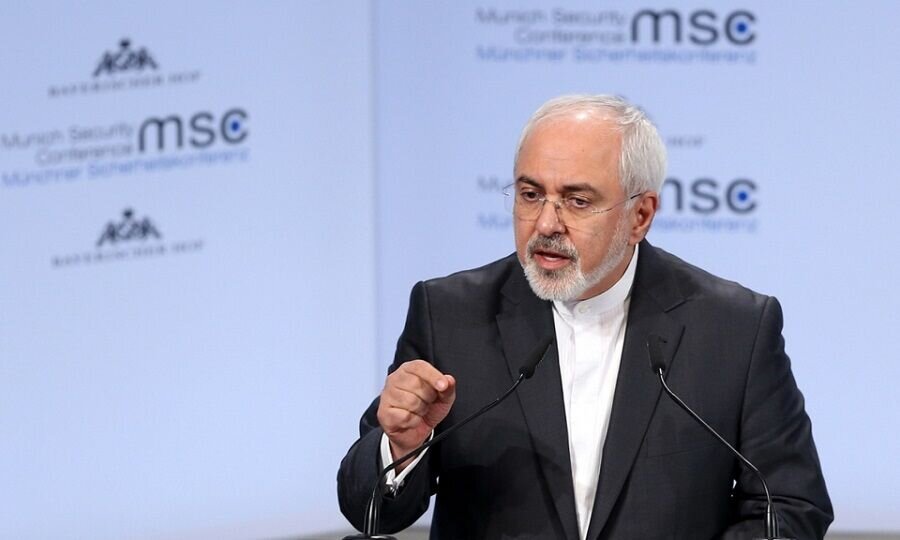Zarif says Iran’s nuclear decisions are reversible if Europe takes ‘meaningful’ steps

TEHRAN – Foreign Minister Mohammad Javad Zarif said on Friday that Iran’s decisions to reduce nuclear commitments are reversible if Europe takes “meaningful” steps in preserving the 2015 nuclear deal, officially known as the JCPOA.
Tehran's moves to ramp-up its nuclear program in the past few months are reversible provided that "Europe takes steps that are meaningful,” Zarif told reporters on the sidelines of the Munich Security Conference, according to AP.
AP also reported that Zarif was expected to meet on the sidelines of the conference with German Foreign Minister Heiko Maas to talk about ongoing European efforts to preserve the nuclear deal with Iran.
The U.S. has been pressuring other members of the deal to pull out as well, but Maas told the forum that Germany rejected the U.S. tactic of “maximum pressure” on Iran.
“We are sticking firmly to our course in the Middle East, and that is de-escalation instead of maximum pressure,” he said.
EU foreign policy chief Josep Borrell has said that Europe must ensure Iran’s benefits from the nuclear deal if it wants the deal to survive.
“If we want the Iran nuclear deal to survive, we need to ensure that Iran benefits if it returns to full compliance,” he wrote in an article in the Project Syndicate published on February 8.
Borrell was notified in January by Paris, London, and Berlin that they had triggered the dispute mechanism.
He has said that the EU will extend indefinitely the time limit to resolve disputes in the nuclear deal to avoid having to go to the UN Security Council or triggering new sanctions.
“There is an agreement that more time is needed due to the complexity of the issues involved. The timeline is therefore extended,” Borrell said in a statement on January 24.
In May 2019 Iran started to reduce its commitments to the JCPOA at bi-monthly intervals in response to the abrogation of the pact by the U.S. coupled with the European Union’s inaction to shield Iran’s economy from sanctions.
‘U.S. assassination of general was a miscalculation’
Zarif also said that the assassination of Lieutenant General Qassem Soleimani by the U.S. was a “miscalculation” that has had the effect of bolstering support in Iraq for the removal of American troops.
Zarif said “the U.S. miscalculated,” noting that since the assassination, thousands of Iraqis have taken to the streets to protest against the presence of foreign troops in the country.
“The martyr Soleimani is much more effective than Gen. Soleimani,” Zarif said.
“We are seeing that in terms of demonstrations that are taking place in Iraq against the U.S. presence,” he said.
The U.S. assassinated Soleimani, Iran’s top anti-terror commander, in an airstrike in Baghdad on January 3.
Leader of the Islamic Revolution Ayatollah Ali Khamenei has described the assassination of Soleimani as a “cowardly” act that brought “disgrace” upon the U.S. and said that the U.S. must leave the region.
On January 5, two days after the U.S. assassination of General Soleimani, the Iraqi parliament voted for a resolution requiring the government to order the withdrawal of U.S. troops from Iraq.
Also on January 8, Iran fired dozens of ballistic missiles at Ein-al Assad airbase, which hosts U.S. troops, in revenge for the assassination of General Soleimani.
The Pentagon recently admitted that 109 service members had suffered brain injuries in the attack despite the fact that they had hunkered down in bunkers.
NA/PA
